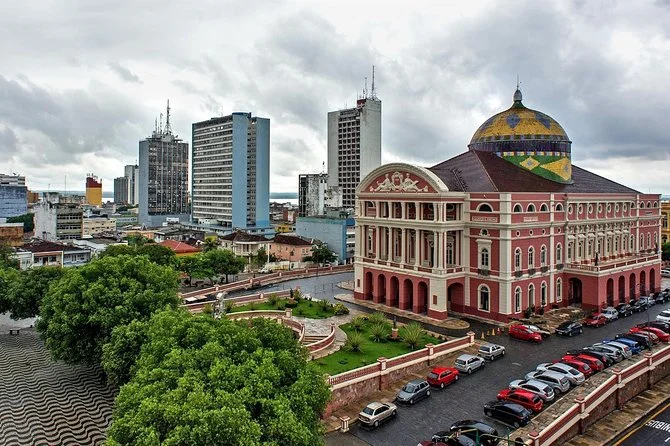A recent study warns that several Brazilian capitals will become some of the world’s hottest cities by 2050.
Conducted by Carbon Plan and a major news outlet, the study focuses on Brazil’s unique vulnerabilities.
Specifically, Brazil’s large land area and tropical climate make it more susceptible to heat.
Cities like Teresina and Cuiabá already face high temperatures. Meanwhile, Manaus will endure extreme heat for 258 days a year.
This places Manaus at the top of the list in Brazil. Next, cities like Belém and Porto Velho also face long periods of extreme heat.
Paulo Artaxo, a professor at the University of São Paulo, emphasizes the study’s importance.
He notes that high heat and humidity, especially in regions like the Amazon, create health risks. Essentially, high humidity hampers the body’s cooling mechanisms.

The study also gives a future outlook. It predicts a global temperature rise of three degrees Celsius by the century’s end.
In areas like northeastern Brazil, the increase could be up to 4.5 degrees. Consequently, nearly five billion people worldwide could experience harmful heat within 30 years.
In conclusion, the study calls for urgent action to reduce greenhouse gases. Doing so remains our only option to prevent severe climate change.
Background
This study adds to the growing body of evidence highlighting the urgent need for climate action.
Brazil, being a tropical country, has always faced challenges related to heat. However, increasing temperatures due to climate change are making the situation worse.
Historically, Brazil has had significant deforestation issues, which also contribute to climate change. Thus, it faces a double burden.
Local governments and international bodies must collaborate to find solutions. The Paris Agreement, which Brazil has ratified, sets the stage for such collaboration.
Failing to act now could make these dire predictions a reality, affecting millions of lives.

